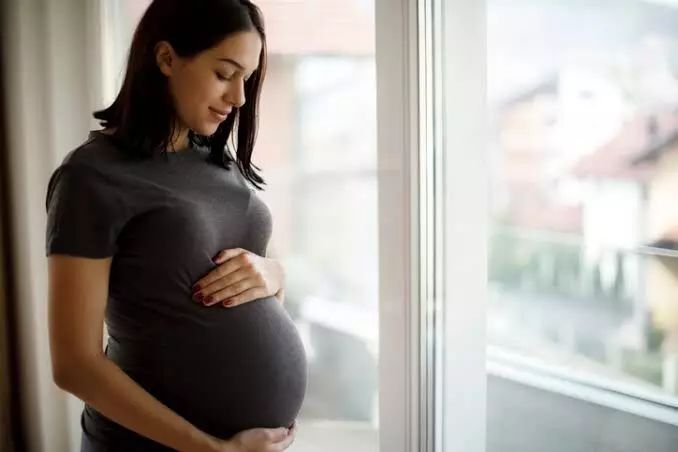
Pregnant women with male foetuses produce less antibodies after first dose: Study
text_fieldsWomen who are carrying male fetuses show a decreased antibody response to the first dose of the Covid-19 vaccine, claims a new study published in Science Translational Medicine. In general, pregnant and breastfeeding women showed less antibody production after receiving the first dose of the vaccine, highlighting the importance of completing both doses scientists said, in a second study published in the same journal.
Immune responses to a single dose of vaccines from Moderna Inc. and Pfizer Inc. and BioNTech SE were weaker than in a group of nonpregnant women. Immune responses to a single dose of vaccines from Moderna Inc. and Pfizer Inc. and BioNTech SE were weaker than in a group of nonpregnant women.
"These results imply that vaccination earlier in pregnancy and boosting later in pregnancy will help to maximize transplacental and breastmilk antibody transfer," Cristian Ovies and colleagues from Duke University School of Medicine, who weren't involved in the study, said in a related editorial in the journal.
More research is needed to understand why women with male fetuses produce less antibodies than those carrying females, which scientists hope will also increase the representation of pregnant women in vaccine development. There has been an element of vaccine hesitancy amongst pregnant women after rumours that the vaccines could impact fertility and the menstrual cycle emerged. But pregnant women are also particularly vulnerable to the virus according to previous studies.
























